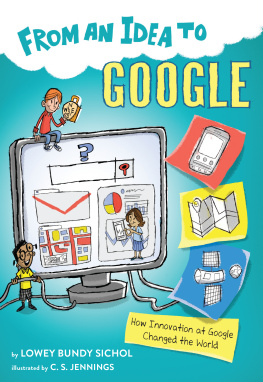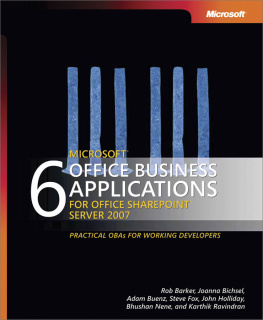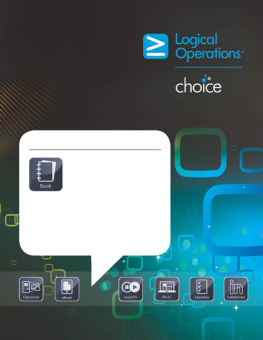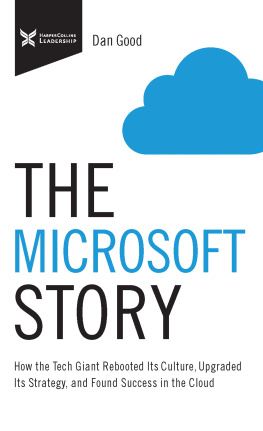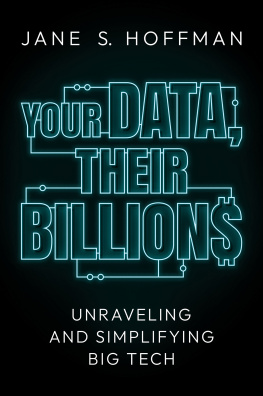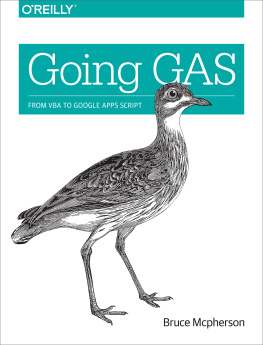Note on the Ebook Edition For an optimal reading experience, please view large
tables and figures in landscape mode. |
This ebook published in 2011 by
Kogan Page Limited
120 Pentonville Road
London N1 9JN
UK
www.koganpage.com
Charles Arthur, 2012
E-ISBN 978 0 7494 6414 1
Contents
T he world we experience is analogue: colours, sounds, smells, all merge and mix smoothly. The digital world ushered in by computers is different: binary, on or off, yes or no. The arrival of affordable personal computing beginning in the 1970s, followed by the addition in the 1990s of the internet, began to create entirely new businesses such as Yahoo, a website that offered up-to-the-minute news, weather and free e-mail and to overturn existing ones, such as the music industry, at a pace that multiplied geometrically with the number of computers connected to the network.
Into this maelstrom of change came three companies: Apple, Microsoft and Google. They were radically different companies. By the time all three arrived on the digital battlefield, the glory days of one were apparently behind it; another stood atop the computing and business world; the third was barely more than a clever idea in the minds of two very clever students.
The companies would subsequently fight a series of pitched battles for control of different parts of the digital landscape. Their weapons would be hardware, software and advertising. At stake were their reputations but, equally, our future. Does it matter which search engine most people use? Where we buy our digital music? Who makes the software that powers our mobile phone, or the tablet that we use while waiting for a train or meeting? Some think not: that the momentum of human intentions means we will always get the correct outcomes, no matter who is overseeing our experiences. Others say that the digital landscape is covered in tollgates, and that those who control them will always determine the shape of the future.
What is certain is that to control any of them is a golden opportunity to extract tolls from the millions and millions of people passing through. The reward for winning any of the digital wars is enormous wealth and, often, the chance to use that to build a fresh set of tollgates on another part of the landscape, or displace an existing rival.
The first time that all three found themselves sharing the same digital space was 1998. They could not know of the battles to come. But those battles would be world-changing.
Late in 1998 the New Yorker writer Ken Auletta visited Bill Gates, then chief executive of Microsoft, at his offices in Redmond, Washington. It was, as youd expect of a chief executive, a corner office, with trees on one side and buildings on another. Unassuming brown office chairs sat around polished pine furniture; Gatess desk emerged from the tree-side wall, looking more like a breakfast bar than the symbol of a powerful executive. On the desktop under the window facing the trees sat three 21-inch computer monitors. Gates could move documents around their entire expanse.
Microsofts stock was roaring, making the company worth around $250 billion and Gates, then 43, the richest man in the world, based on his share of the business. Microsofts Windows ran about 95 per cent of the PCs in the world, with 100 million being sold annually in a market that was growing by 1520 per cent. A year earlier, a Microsoft press release had boasted about its new search engine,
Why a garage? Because Silicon Valley garages are famous breeding grounds for innovative, disruptive companies that could react faster to conditions and use the newest technology, buoyed by venture capital funding and not burdened with bureaucracy and quarterly earnings reports.
Gates is the classic example of what the writer Malcolm Gladwell calls outliers: people who have spent enormous amounts of time learning and then refining their skills in Gatess case, programming. The clever workarounds that he used to program the very first versions of Basic that his company wrote are legendary among (older) programmers, who recall the days when a spare kilobyte of memory was as precious as water on a desert trek. By contrast with what Gates grew up with, todays programmers have endless reservoirs of storage and memory.
But Gates also brought an animal-sharp business sense and ability to unravel complex problems, while being able to spot the gotchas (the little bugs that might come back to bite you). He had stamped his hard-driving personality on Microsoft, which was known as the 800-pound gorilla of software: if you were setting up a business in the late 1990s then your aim was either to be acquired by it or to steer well clear of anything it did, because it would crush smaller competitors pitilessly.
The tactics Microsoft used were often questionable; for example undercutting rivals on price, because it could, to drive them out of the market. That sort of approach had gained Microsoft another name around the technology industry: the Evil Empire.
In 1998 Microsoft was crushing yet another upstart Netscape, which had had the temerity to suggest that the browser could become the basis for doing work anywhere, so that Windows itself would become irrelevant; all youd need would be a computer that could run a browser, and youd be able to do everything for which you presently needed a PC.
Microsoft had reached the pinnacle by besting Apple the company co-founded by Steve Jobs, a charming, brilliant, tempestuous, iconoclastic, unique businessman who had been thrown out of it in 1985 but returned, triumphantly, at the end of 1996 when another company he had set up, NeXT Computer, was bought by the then ailing Apple, which was bleeding cash. He forced out the incumbent chief executive in July 1997 and became interim chief executive that September at which point the company had made a loss of a billion dollars for the financial year.
Jobs, in his early 40s (born, like Gates, in 1955), was no programmer. Its unlikely that any analysis would discover any Gladwell-qualifying immersion in a particular skill. His talents instead lay in his personal, design and social skills: he could discern the weaknesses and desires of the people across a negotiating table to navigate to a deal, and use a combination of excoriation, wheedling and charm to drive subordinates and even equals into producing better products than they ever expected they could. In Apples earliest days he negotiated excellent deals on semiconductors because he could memorize entire price lists. Yet he could also scream at staff who he thought had done less than they could. Designers, meanwhile, found his constant demands for another little change maddening. (The designer of the Calculator application on the first Macintosh grew so weary of Jobss constant demands for changes that he wrote a program that would let Jobs design it.)
Jobss lust for design has no obvious roots; he was the adopted son of working parents. But he was able to enunciate it very clearly. Design is a funny word. Some people think design means how it looks, he said in an interview with Wired in 1995.
Yet it was those negotiation skills that so often came in useful. Jobs was not strictly a salesperson, in that he wouldnt try to sell something he didnt completely believe in or use himself. However, when he needed something, his negotiating skills came to the fore. Not even Gates was immune from them. In 1997, and with the company (by his later admission) just 90 days from bankruptcy, Jobs spoke to Gates. Microsoft was infringing some of Apples patents, and Apple needed money; more than that, it needed a commitment that Gatess company would keep making its Office suite available for the Mac. Otherwise businesses would abandon it, and that would be that: Apple could turn off the lights.



